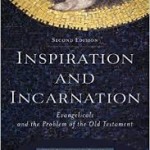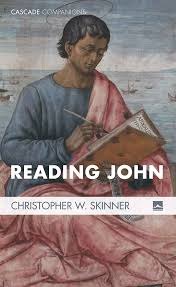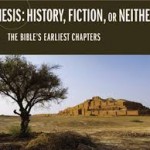 In my last post, I introduced Kent Sparks’s excellent book Sacred Word, Broken Word: Biblical Authority and the Dark Side of Scripture
In my last post, I introduced Kent Sparks’s excellent book Sacred Word, Broken Word: Biblical Authority and the Dark Side of Scripture with a quote from Bonhoeffer that is found at the end of the preface. Today, I want to continue with another quote from the book that sheds light on Sparks’s approach to the Bible.
After laying out in chapter 1 his reasons for approaching Scripture with a “hermeneutic of respect” rather than of suspicion, Sparks takes at nod at the “problem of evil” in chapter 2. In a nutshell, for those of you who may not be familiar with the terminology, the problem of evil concerns the age-old question of how a good and almighty God can be responsible for a world that is so warped.
Sparks isn’t concerned to solve the problem in a short book on the Bible, but he uses the problem of evil to explain why the Bible behaves as it does, and therefore how we should read it.
why the Bible behaves as it does, and therefore how we should read it.
Sparks argues that humans continually have to make moral choices in a fallen world, and there are no “fail safe methods for making these judgments” (p. 21). Making moral choices is to declare what is good (part of the world as God intended) and evil (part of the world as fallen). Some choices are more obvious than others, but there is also a lot of grey.
Sparks continues that the Bible is not a fail safe guide to making these difficult moral judgments. He does not mean that the Bible is of no value for making moral judgments, but that the Bible (1) addresses a limited number of issues and topics, (2) is historically remote, and (3) is always being interpreted by fallen people and is, therefore, subject to misunderstanding.
But there is a more fundamental reason why the Bible is not a simple, straightforward, guidebook for life:
[T]he Bible actually stands within the fallen order that we seek to understand. That is, if I may foreshadow where I am heading in the discussion, the problem of Scripture is one permutation of the larger problem of evil (p.22, emphasis original).
Sparks is not saying that the Bible is evil (!!). He is saying that the same uncertainty besets both our day-to-day moral decisions and our interpretive decisions about the Bible. The Bible does not stand outside of the cosmos but is part of it, since God has allowed humans in their fallen humanity to write it.
One clear application of Sparks’s thesis concerns the mass killings God either orders or himself executes in the Old Testament. Sparks goes into greater detail later in the book, but, as a preview, here is where it seems Sparks is heading: since Scripture is part of the fallen world, Christians should not take Canaanite genocide as either binding upon us, or even reflecting truly the nature of God. Rather, it reflects the fallen nature of creation.
For this reason, the church has to read Scripture and discern not simply how it should it be applied but whether or not some portions of it truly reflect the “Christian trajectory” (my phrase, not Sparks’s).
Anyway, an interesting thought. I’ve not seen before an analogy drawn between the Bible and the problem of evil. What are you’re thoughts?











